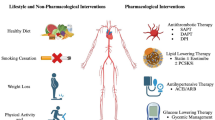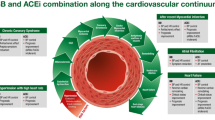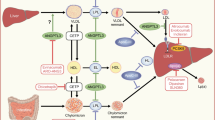Abstract
Purpose of Review
Atherosclerotic cardiovascular disease (ASCVD) is caused by elevated levels of low-density lipoprotein cholesterol (LDL-C). Although statins significantly reduce ASCVD risk, there remains a high degree of residual risk in statin-treated patients. Proprotein convertase subtilisin/kexin type 9 (PCSK9) inhibition has emerged as a significant therapeutic target for further lowering of LDL-C when used in combination with statins. The purpose of this review is to provide an update on recent evidence supporting the use of PCSK9 inhibitors in patients with ASCVD.
Recent Findings
Alirocumab and evolocumab were approved by the US Food and Drug Administration in 2015. Multiple phase II and III studies have demonstrated that these agents reduce LDL-C levels by up to 60% and are relatively safe, with the exception of injection site reactions. Additionally, two randomized controlled clinical trials have demonstrated that both alirocumab and evolocumab reduce ASCVD events when used in combination with statin therapy compared to statin alone. In light of this evidence, the 2018 Cholesterol Guideline incorporated PCSK9 inhibitors into the treatment algorithm for select secondary prevention patients unable to achieve an LDL-C below 70 mg/dL despite maximally tolerated statin plus ezetimibe.
Summary
Although PCSK9 inhibitors provide substantial reductions in LDL-C levels and reduce ASCVD events in secondary prevention populations, the cost-effectiveness of alirocumab and evolocumab limit widespread use. Additional research is needed to explore the role of PCSK9 inhibitors in other populations, including primary prevention, patients unable to tolerate statins, and acute myocardial infarction.
Similar content being viewed by others
References
Papers of particular interest, published recently, have been highlighted as: • Of importance •• Of major importance
Roth GA, Johnson C, Abajobir A, Abd-Allah F, Abera SF, Abyu G, et al. Global, regional, and national burden of cardiovascular diseases for 10 causes, 1990 to 2015. J Am Coll Cardiol. 2017;70(1):1–25.
Ference BA, Ginsberg HN, Graham I, Ray KK, Packard CJ, Bruckert E, et al. Low-density lipoproteins cause atherosclerotic cardiovascular disease. 1. Evidence from genetic, epidemiologic, and clinical studies. A consensus statement from the European Atherosclerosis Society Consensus Panel. Eur Heart J. 2017;38(32):2459–72.
Cholesterol Treatment Trialists’ (CTT) Collaborators. Efficacy and safety of cholesterol-lowering treatment: prospective meta-analysis of data from 90 056 participants in 14 randomised trials of statins. Lancet. 2005;366:1267–78.
Sisson EM, Pamulapati L, Bucheit JD, Kelly MS, Dixon DL. Evolving role of non-statin therapy for the management of dyslipidemia and cardiovascular risk reduction: past, present, and future. Pharmacotherapy. 2018;38(2):164–71.
Dixon DL, Trankle C, Buckley L, Parod E, Carbone S, Van Tassell BW, et al. A review of PCSK9 inhibition and its effects beyond LDL receptors. J Clin Lipidol. 2016;10(5):1073–80.
Cohen JC, Boerwinkle E, Mosley TH Jr, Hobbs HH. Sequence variations in PCSK9, low LDL, and protection against coronary heart disease. N Engl J Med. 2006;354:1264–72.
Sabatine MS, Giugliano RP, Keech A, Honarpour N, Wang H, Liu T, et al. Rationale and design of the Further cardiovascular OUtcomes Research with PCSK9 Inhibition in subjects with Elevated Risk trial. Am Heart J. 2016;173:94–101.
•• Sabatine MS, Giugliano RP, Keech AC, Honarpour N, Wiviott SD, Murphy SA, et al. Evolocumab and clinical outcomes in patients with cardiovascular disease. N Engl J Med. 2017;376:1713–22 First randomized controlled trial demonstrating evolocumab not only reduces LDL-C but also reduces cardiovascular events in high-risk patients taking maximally tolerated statin.
• Giugliano RP, Mach F, Zavitz K, Kurtz C, Im K, Kanevsky E, et al. Cognitive function in a randomized trial of evolocumab. N Engl J Med. 2017;377:633–43 First trial to prospectively assess impact of PCSK9 inhibition on cognitive function.
Repatha [package insert]. Thousand oaks, CA: Amgen Inc; 2018.
• Sabatine MS, De Ferrari GM, Giugliano RP, et al. Clinical benefit of evolocumab by severity and extent of coronary artery disease. Circulation. 2018;138:756–66 Demonstrates the clinical utility of prioritizing evolocumab for patients with a history of multiple myocardial infarctions, recent events, and presence of multivessel disease.
• Giugliano RP, Pedersen TR, Park JG, De Ferrari GM, Gaciong ZA, Ceska R, et al. Clinical efficacy and safety of achieving very low LDL-cholesterol concentrations with the PCSK9 inhibitor evolocumab: a prespecified secondary analysis of the FOURIER trial. Lancet. 2017;390:1962–71 Provides safety data on the lowest LDL-C concentrations ever achieved in a clinical trial.
Amgen. Fourier open-label extension study in subjects with clinically evident cardiovascular disease in selected European countries. Available from: https://clinicaltrials.gov/ct2/show/NCT03080938. NLM Identifier: NCT03080938. Accessed January 15, 2019.
•• Grundy SM, Stone NJ, Bailey AL, Beam C, Birtcher KK, Blumenthal RS, et al. 2018 AHA/ACC/AACVPR/AAPA/ABC/ACPM/ADA/AGS/APhA/ASPC/NLA/PCNA guideline on the management of blood cholesterol. J Am Coll Cardiol. 2018. https://doi.org/10.1016/j.jacc.2018.11.003 Updated clinical practice guidelines that incorporates data from recent clinical trials and shapes current practice for the use of PCSK9 inhibitors.
Sabatine MS, Leiter LA, Wiviott SD, Giugliano RP, Deedwania P, De Ferrari GM, et al. Cardiovascular safety and efficacy of the PCSK9 inhibitor evolocumab in patients with and without diabetes and the effect of evolocumab on glycaemia and risk of new-onset diabetes: a prespecified analysis of the FOURIER randomised controlled trial. Lancet Diabetes Endocrinol. 2017;5:941–50.
Bonaca MP, Nault P, Giugliano RP, Keech AC, Pineda AL, Kanevsky E, et al. Low-density lipoprotein cholesterol lowering with Evolocumab and outcomes in patients with peripheral artery disease: insights from the FOURIER trial (further cardiovascular outcomes research with PCSK9 inhibition in subjects with elevated risk). Circulation. 2018;137:338–50.
Charytan DM, Sabatin MS, Pedersen TR, Im K, Lira Pineda A, Wasserman SM, et al. Efficacy and Safety of Evolocumab in CKD: Data from the FOURIER trial. Poster presented at: Towards better medication usage in patients with CKD. American Society of Nephrology Annual Conference; 2018 Oct 25-28; San Diego, CA.
Tsimikas S, Fazio S, Ferdinand KC, Ginsberg HN, Koschinsky ML, Marcovina SM. NHLBI working group recommendations to reduce lipoprotein(a)-mediated risk of cardiovascular disease and aortic stenosis. J Am Coll Cardiol. 2018;71(2):177–92.
Cao YX, Liu HH, Li S, Li JJ. A meta-analysis of the effect of PCSK9-monoclonal antibodies on circulation lipoprotein (a) levels. Am J Cardiovasc Drugs. 2018;19:87–97. https://doi.org/10.1007/s40256-018-0303-2.
O’Donoghue ML, Fazio S, Giugliano RP, Stroes ESG, Kanevsky E, Gouni-Berthold I, et al. Lipoprotein(a), PCSK9 inhibition and cardiovascular risk: insights from the FOURIER Trial. Circulation. 2018. https://doi.org/10.1161/CIRCULATIONAHA.118.037184.
•• Schwartz GG, Steg PG, Szarek M, Bhatt DL, Bittner VA, Diaz R, et al. Alirocumab and cardiovascular outcomes after acute coronary syndrome. N Engl J Med. 2018;379(22):2097–107 The ODYSSEY trial demonstrated alirocumab reduces cardiovascular events in a very high-risk acute coronary syndrome population.
Orringer CE, Jacobson TA, Saseen JJ, Brown AS, Gotto AM, Ross JL, et al. Update on the use of PCSK9 inhibitors in adults: recommendations from an Expert Panel of the National Lipid Association. J Clin Lipidol. 2017;11(4):880–990.
Cannon CP, Khan I, Klimchak AC, et al. Simulation of lipid-lowering therapy intensification in a population with atherosclerotic cardiovascular disease. JAMA Cardiol. 2017;2(9):959–66.
Virani SS, Akeroyd JM, Nambi V, et al. Estimation of eligibility for proprotein convertase subtilisin/kexin type 9 inhibitors and associated costs based on the FOURIER Trial. Circulation. 2017;135:2572–4.
Neumann PJ, Cohen JT, Weinstein MC. Updating cost-effectiveness — the curious resilience of the $50,000-per-QALY threshold. N Engl J Med. 2014;371:796–7.
Kazi DS, Moran AE, Coxson PG, Penko J, Ollendorf DA, Pearson SD, et al. Cost-effectiveness of PCSK9 inhibitor therapy in patients with heterozygous familial hypercholesterolemia or atherosclerotic cardiovascular disease. JAMA. 2016;316(7):743–53.
Tice JA, Kazi DS, Pearson SD. Proprotein convertase subtilisin/kexin type 9 (PCSK9) inhibitors for treatment of high cholesterol levels: effectiveness and value. JAMA Intern Med. 2016;176(1):107–8.
• Arrieta A, Hong JC, Khera R, Virani SS, Krumholz HM, Nasir K. Updated cost-effectiveness assessments of PCSK9 inhibitors from the perspectives of the health system and private payers: insights derived from the FOURIER trial. JAMA Cardiol. 2017;2(12):1369–74 First cost-effectiveness study performed based on outcomes from the FOURIER trial.
Amgen. Amgen and Harvard Pilgrim agree to first cardiovascular outcomes-based refund contract for Repatha (Evolocumab). https://www.amgen.com/media/news-releases/2017/05/amgen-and-harvard-pilgrim-agree-to-first-cardiovascular-outcomesbased-refund-contract-for-repatha-evolocumab/. Accessed January 8, 2019.
Amgen. Amgen makes Repatha (evolocumab) Available in the US at a 60 percent reduced list price. https://www.amgen.com/media/news-releases/2018/10/amgen-makes-repatha-evolocumab-available-in-the-us-at-a-60-percent-reduced-list-price/. Accessed January 8, 2019.
Kaufman TM, Warden BA, Minnier J, Miles JR, et al. Application of PCSK9 inhibitors in practice, part 2: the patient experience. Circ Res. 2019;124:32–27.
Robinson JG, Williams KJ, Gidding S, Boren J, Tabas I, Fisher EA, et al. Eradicating the burden of atherosclerotic cardiovascular disease by lowering apolipoprotein B lipoproteins earlier in life. J Am Heart Assoc. 2018. https://doi.org/10.1161/JAHA.118.009778.
Civeira F, Jarauta E. Vaccine against PCSK9: the natural strategy from passive to active immunization for the prevention of atherosclerosis. J Thorac Dis. 2017;9(11):4291–4.
• Ray KK, Landmesser U, Leiter LA, Kallend D, Dufour R, Karakas M, et al. Inclisiran in patients at high cardiovascular risk with elevated LDL cholesterol. N Engl J Med. 2017;376:1430–40 Suggests inclisiran may be an effective alternative to PCSK9 monoclonal antibodies and serves as foundation for conducting a clinical outcomes trial.
•• Nissen, SE SE, Dent-Acosta RE, Rosenson RS, Lehman SJ, Sattar N, et al. Efficacy and tolerability of evolocumab vs ezetimibe in patients with muscle-related statin intolerance: the GAUSS-3 randomized clinical trial. JAMA. 2016;315(15):1580–90 Provides unique insights regarding patient self-reported statin associated muscle symptoms and supports the role of PCSK9 inhibitors in this population.
Trankle C, Abbate A. PCSK9 inhibition in acute myocardial infarction: a novel opportunity. Transl Med. 2016;6:e135. https://doi.org/10.4172/2161-1025.1000e135.
Johns Hopkins University Evolocumab in Acute Coronary Syndrome (EVACS). Available from: https://clinicaltrials.gov/ct2/show/NCT03515304. NLM Identifier: NCT03515304. Accessed February 6, 2019.
Landmesser U, Chapman MJ, Stock JK, Amarenco P, Belch JJF, Boren J, et al. 2017 Update of ESC/EAS Task Force on practical clinical guidance for proprotein convertase subtilisin/kexin type 9 inhibition in patients with atherosclerotic cardiovascular disease or in familial hypercholesterolaemia. Eur Heart J. 2018;39(14):1131–43.
Author information
Authors and Affiliations
Corresponding author
Ethics declarations
Conflict of Interest
Dave L. Dixon, Lauren G. Pamulapati, John Bucheit, Evan M. Sisson, Shawn R. Smith, Caroline Kim, George F. Wohlford, and Jonah Pozen declare no conflict of interest.
Human and Animal Rights and Informed Consent
This article does not contain any studies with human or animal subjects performed by any of the authors.
Additional information
Publisher’s Note
Springer Nature remains neutral with regard to jurisdictional claims in published maps and institutional affiliations.
This article is part of the Topical Collection on Coronary Heart Disease
Rights and permissions
About this article
Cite this article
Dixon, D.L., Pamulapati, L.G., Bucheit, J.D. et al. Recent Updates on the Use of PCSK9 Inhibitors in Patients with Atherosclerotic Cardiovascular Disease. Curr Atheroscler Rep 21, 16 (2019). https://doi.org/10.1007/s11883-019-0778-6
Published:
DOI: https://doi.org/10.1007/s11883-019-0778-6




